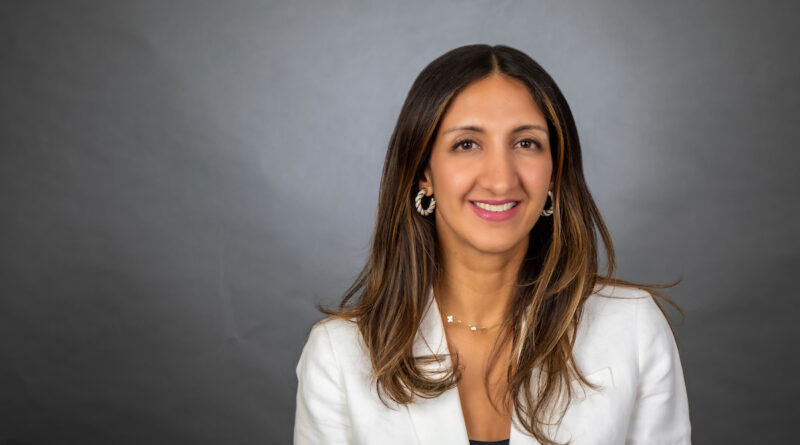Meet Claudia Dillon, NYCHA’s New VP of the Office of Diversity, Equity, and Inclusion
Claudia Dillon is NYCHA’s new Vice President of the Office of Diversity, Equity, and Inclusion (ODEI). She joined NYCHA in April; under her leadership, the Department of Equal Opportunity was renamed and its mission was expanded to develop more proactive functions, through tailored training; assessment of hiring practices using workforce data; and other Diversity, Equity, and Inclusion (DEI) programs in recognition and celebration of the diverse culture and heritage within NYCHA’s workforce. ODEI also continues to investigate discrimination, sexual harassment, and fair housing allegations.
Ms. Dillon brings vast knowledge of the inner workings of City government, Equal Employment Opportunity, and DEI experience to NYCHA. She spent more than 12 years at the NYC Department of Transportation (DOT) – most recently as Senior Counsel of EEO and Accessibility, where she oversaw attorneys investigating EEO complaints; advised on DEI strategy and initiatives; and provided legal guidance on day-to-day human resources and labor matters.
We spoke with Ms. Dillon about ODEI’s new name, various types of DEI programs, and her career highlights.
How does ODEI’s new name better reflect its mission?
By renaming DEO to ODEI (or Office of Diversity, Equity, and Inclusion), we’re messaging that we’ve broadened our mission and functions. The Equal Employment Opportunity (EEO) and Fair Housing investigation functions will still be a large part of my office’s work, but all within the DEI umbrella.
We want residents and employees to know we’re here and we’re going to be more proactive. We’ll have more enhanced and robust outreach and education, including going on the road to developments for EEO and Fair Housing talks tailored to issues we’re seeing through complaints and inquiries. These talks will let people know their rights but also answer questions about any potential issues that – although they may not quite rise to the complaint level – should still be heard and discussed in an informal and casual setting.
A lot of EEO focus is generally on discrimination and sexual harassment, but from what I’ve seen in my experience, retaliation is an area we need targeted education on. I think managers and employees alike need more understanding of what type of behavior can be considered retaliatory, as it is typically construed very broadly. And at the same time, employees who have engaged in protected activity and are protected by retaliation laws don’t get a golden ticket to behave or perform in an unproductive or subordinate manner.
What type of DEI initiatives and programs can employees look forward to?
For many people, diversity, equity, and inclusion seem like intangible concepts, but I’m excited to be able to create solid opportunities for employees over the next several months. Nearly every month in the calendar year recognizes different heritage or cultural groups, such as Black History Month in February or Pride Month in June. We’ll be promoting awareness and education by sharing historical background, events across the city, as well as NYCHA events, such as film features, panel discussions, or potlucks, in partnership with some of our existing clubs through Employee Engagement. By formally recognizing and giving employees the power to promote their history and heritage, it allows us to create experiences where all feel they have equal footing and a sense of belonging.
Successful DEI programs promote transparency and community within NYCHA and also help develop networking opportunities across different levels of employment. It also holds us, as leaders and managers, accountable in ensuring we maintain a workplace that tolerates and promotes diversity. I believe that with more robust and supported DEI programs in the workplace, there is less complaint activity – since DEI programs can teach and shape behavior in a more impactful way than, let’s say, a computer-based training. That is, at least, one of my many ideals in running ODEI.
What is a moment in your career that you are proud of?
One of the things I’m most proud of was the remedial work I was involved with after the City was subject to a class action pattern and practice discrimination lawsuit involving the failure to promote qualified, minority DOT employees. We scheduled a series of informal, one-on-one talks instead of big group or class trainings with the operational teams. We wanted to have intimate discussions with employees at their work sites to provide them with an opportunity, for the first time, to speak in complete candor about their concerns and need for structured hiring to ensure that promotions are not based on favoritism, cronyism, or any other -isms. This included providing guidance to managers and supervisors on how to better communicate with staff to boost morale and improve work performance.
I’m also proud of the structured hiring guidelines we built at DOT that were required for certain titles. We made sure that from the beginning of an application process – with HR canvassing resumes, to the interview process, selection, and onboarding – there were checks and balances in place that would mitigate disparate hiring issues in the future. Some of those guidelines were ensuring the sample of resumes were representative and diverse based on the applicant pool, having diverse interview panels, and creating structured interview questions where no one deviated off script so there weren’t perceptions of favoritism.







